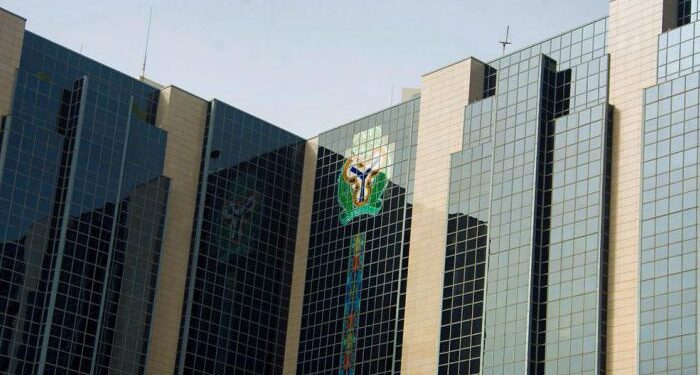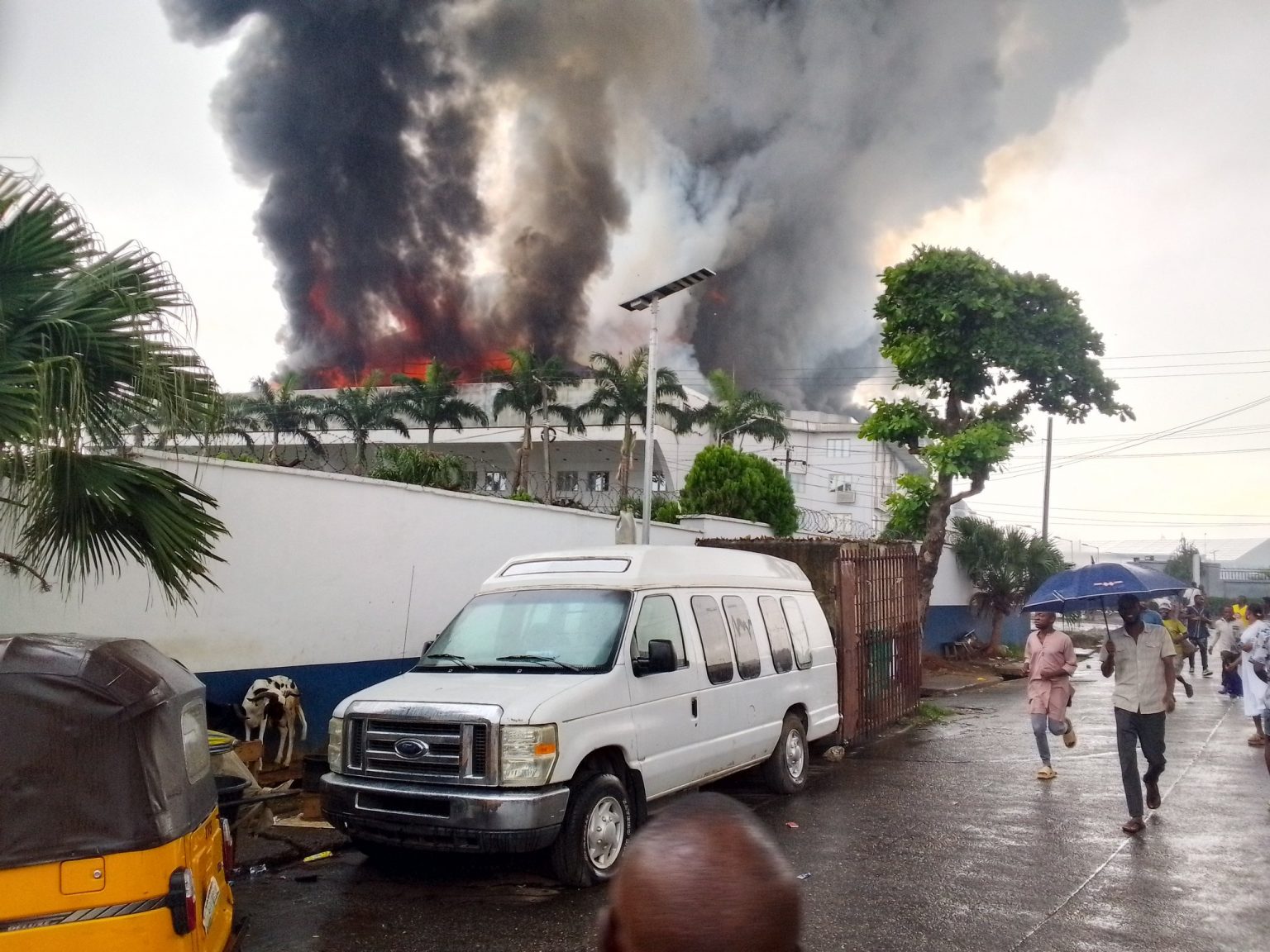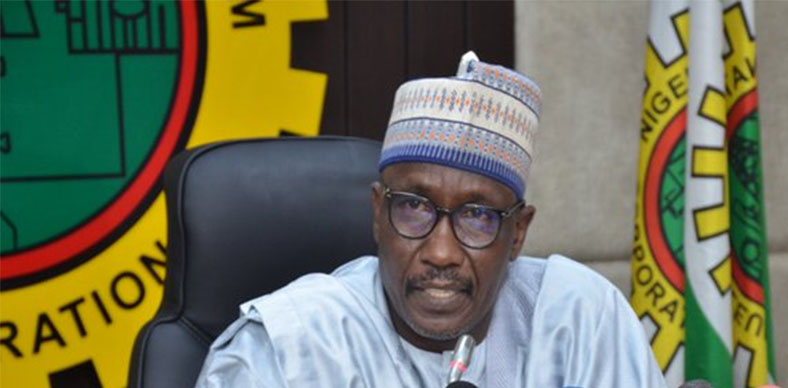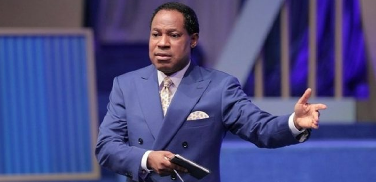The Governor of the Central Bank of Nigeria CBN, Olayemi Cardoso, says inflationary pressure has started dropping as a result of the central bank’s policy measures, which aim to reduce the current inflation rate of 33.69 per cent.
This was as he revealed that the country recorded a total foreign exchange inflow of about $24bn in the first quarter of 2024, which is about 50 per cent above the inflows recorded in previous quarters up to 2021.
The governor also declared that the days of excessive naira volatility were over, highlighting the positive impact of the monetary policy tools employed by the apex bank to tackle the challenges facing the forex market.
Cardoso made this disclosure during an interview with Bloomberg TV on Tuesday in London which was monitored by our correspondent, stressing that the Monetary Policy Committee sees inflation as an impediment to the future of Nigeria and would do everything in its control to tackle it.
An analyst, however, criticised the projection, arguing that assessments of the economic situation and inflationary pressures should reflect the views of the average Nigerian.
Since assuming office in September 2023, the CBN governor has undertaken a series of steps to restore orthodox monetary policy aimed at confronting hydra-headed inflation, attracting foreign inflows and stabilising the nation’s currency.
Interest rates have been increased by 750 basis points this year to 26.25 per cent, a foreign exchange backlog of $7bn has been cleared, and the country’s exchange rate policies have been overhauled with new guidelines.
This month, the naira has stabilised trading in a narrow range between N1,473 and N1,490, according to data from the FMDQ securities exchange.
However, Nigerians are concerned because the policies have not resulted in a reduction in the prices of basic commodities, despite the widespread hunger among the population.
Cardoso, speaking in a 20-minute interview, noted a deceleration in the month-on-month inflation rates, highlighting it as a positive development.
He assured that the Monetary Policy Committee members remained vigilant in monitoring inflation trends and ensuring a moderation of inflation numbers.
He said, “The MPC has been very clear in stating that they see inflation as a major impediment to the future of Nigeria and would do everything possible to ensure that they keep inflation in check and bring it down as reasonably as they can. I don’t see that changing. So far from what we’re seeing, there’s a deceleration in inflation rates, which is good news. And my intuition is that with the measures that have been taken in the recent past, and with the confidence of the MPC members to watch the interest rate trajectory very closely. We should see a continuation of the moderation in the inflation rate.”
“Again, let’s watch the numbers but my intuition is that the MPC is determined to ensure that they put inflation in control.
Moreover, the governor refused to be drawn into whether this could signal the end of the tightening cycle that began in May 2022, when the central bank’s monetary policy committee meets in mid-July.
“Data will direct whether they see further hikes or not. The MPC has been very clear in stating that they see inflation as a major impediment to the future of Nigeria, and they will do everything possible to ensure that they keep inflation in ch and k bring it down as reasonably as they can and I don’t see that changing.”
“Let’s not forget that the MPC is an independent-minded group of people who deal with data. So, what I will say is that depending on what data they see at a particular point in time will direct how they see the hikes or not,” he added.
On the relative stability enjoyed in the exchange market, the former Lagos commissioner for Finance said the bank was relatively pleased with the progress it has made in stabilising the naira and would encourage measures to drive down the rates, adding that the worst was over for the Naira’s fluctuations.
Cardoso’s optimism stems from the CBN’s multi-pronged approach to stabilizing the naira before the recent interventions, speculation and manipulation in the FX forward contract market were contributing to naira volatility.
“We do believe that we have more or less seen the worst in terms of volatility. You recall that months ago when I assumed office in September of 2023, we did have a crisis on our hands and the naira was, you know headed in a direction that everybody didn’t like.
“There was a lot of fear, panic, loss of confidence and trust. And it was vitally important that we addressed those issues of confidence and trust. We are relatively pleased with how far we have gotten up to now. In the past two, or three weeks, after a period of volatility, we have seen a lot of stability in the market and there has hardly been any movement in the currency.”
“Several things were done, which included appreciating the fact that there were a lot of distortions within the foreign exchange system that did not give people the confidence to want to invest or want to keep their money in Naira. Everybody exchanged into dollars and held dollars and we addressed those issues using a flurry of different circulars, addressing some to the banks and some to the operations of the system itself. One of which is the fact that more confidence was going to come back into the market. A lot of inflows have come back because there’s very little liquidity at the time.
“In terms of liquidity, especially on the foreign exchange side, we have seen an increase. The first quarter of this year has resulted in a total inflow of about $24bn. Now, this is almost about 40 to 50 per cent more than the quarters up to about 2021.”
Cardoso noted that the rise in FX liquidity in the first quarter of 2024 is the highest in any quarter since 2021.
“The tools are having a positive impact. So we believe that continuing on this trajectory, we believe that liquidity will continue to grow,” he noted.
In April, Nigeria recorded a total foreign portfolio inflow of N93.37bn against a foreign outflow of N119.81 billion, marking a 415 per cent increase compared to the same period in 2023.
Portfolio inflows refer to the movement of capital into a country’s financial markets from foreign investors.
In addition, the country’s foreign reserve surged to its highest in three months in June since March 2024, indicating a massive increase in liquidity in the foreign exchange market.
According to the latest data published by the Central Bank of Nigeria, the reserves now stand at $33.58 billion as of June 19, 2024.
The rise in FX inflow means there will be sufficient stability in the market and, by extension, the currency which has experienced huge fluctuation since last April.
Speaking further in the interview, Cardoso said the apex bank has set up a committee to facilitate more inflow of diaspora funds into the official FX market.
He said the committee reported directly to him with the sole objective of doubling the inflow of foreign exchange from the international monetary operations.
According to him, this committee has begun to yield positive outcomes with an increase in inflow from Nigerians in the diaspora.
“We’ve had a recognition of the huge role the Nigerian diasporans play in remitting tremendous amounts of money into the system over some time.
“We set up a committee which reports directly to me to double the amount of foreign exchange inflow coming from the IMTO who service that segment the autonomous players.
“Capital inflows are very important. And the reason why it is is that in the case of Nigeria, the pass-through from the foreign exchange rate into inflation is quite significant. We believe that this is an area outside of the normal day-to-day operations that NNPC and exporters will help in closing the gap.
“Already, it’s beginning to bring about results. Again, we are confident that with these kinds of measurements, liquidity will increase in our market,” Cardoso added.
Commenting on the governor’s positive appraisal, a professor of Economics at Babcock University, Segun Ajibola, said the CBN policies though commendable have not solved the problem of the average Nigerian on the street.
The former President and chairman of the Council, Institute of Chartered Institute of Bankers, in an interview with our correspondent on Tuesday, said the quality of life is measured by the affordability of necessities of life, securities of lives and properties and projections into a better tomorrow which is deficient in the country.
He said, “You know when those in positions of responsibility talk, it is assumed that they have the data and can serve information received and can make educated guesses into the future based on the facts available to them. However, the taste of the pudding is in the eating, it is the end that would justify the means. Let the man on the street see the improvement that we are talking about. Let him say food is now cheaper than before. He can heave a sigh of relief that things are improving and that the quality of life he is living is gradually retiring to normal.
“I don’t know if an average Nigerian that is irking out a living is already feeling the positive impact of all these projections. The man on the street should give this type of assessment, not the governor.
“Associations like the Manufacturing Association of Nigeria, Nigerian Association of Chambers of Commerce, Industry, Mines, and Agriculture and other Small-Medium businesses should be the ones to say as a result of the CBN policies, their cost of production has reduced not the regulators.”
The professor added, “Did the governor give reasons for stopping forex allocation to Bureau De Change because I see them flexing muscles with capitalisation lurking. What will be the impact of that? I think we should focus our attention on reducing our thirst for imported items because demand will always affect the rate of the naira.”
Meanwhile, the CBN has permitted eligible International Money Transfer Operators to sell foreign exchange on Nigeria’s official window.
This directive, effective immediately, is part of CBN’s plan to ensure greater remittance flows through formal channels and improve the efficiency of the foreign exchange market.
The circular read, “As part of CBN’s commitment to the smooth functioning of the foreign exchange markets and enabling greater remittance flows through formal channels, the Bank has implemented measures that will allow eligible International Money Transfer Operators to access Naira liquidity through the CBN. These measures are aimed at widening access to local currency liquidity for the timely settlement of diaspora remittances.
“Henceforth, eligible IMTO operators will be able to access the CBN window directly or through their Authorized Dealer Banks to execute transactions for the sale of foreign exchange in the market.”


















